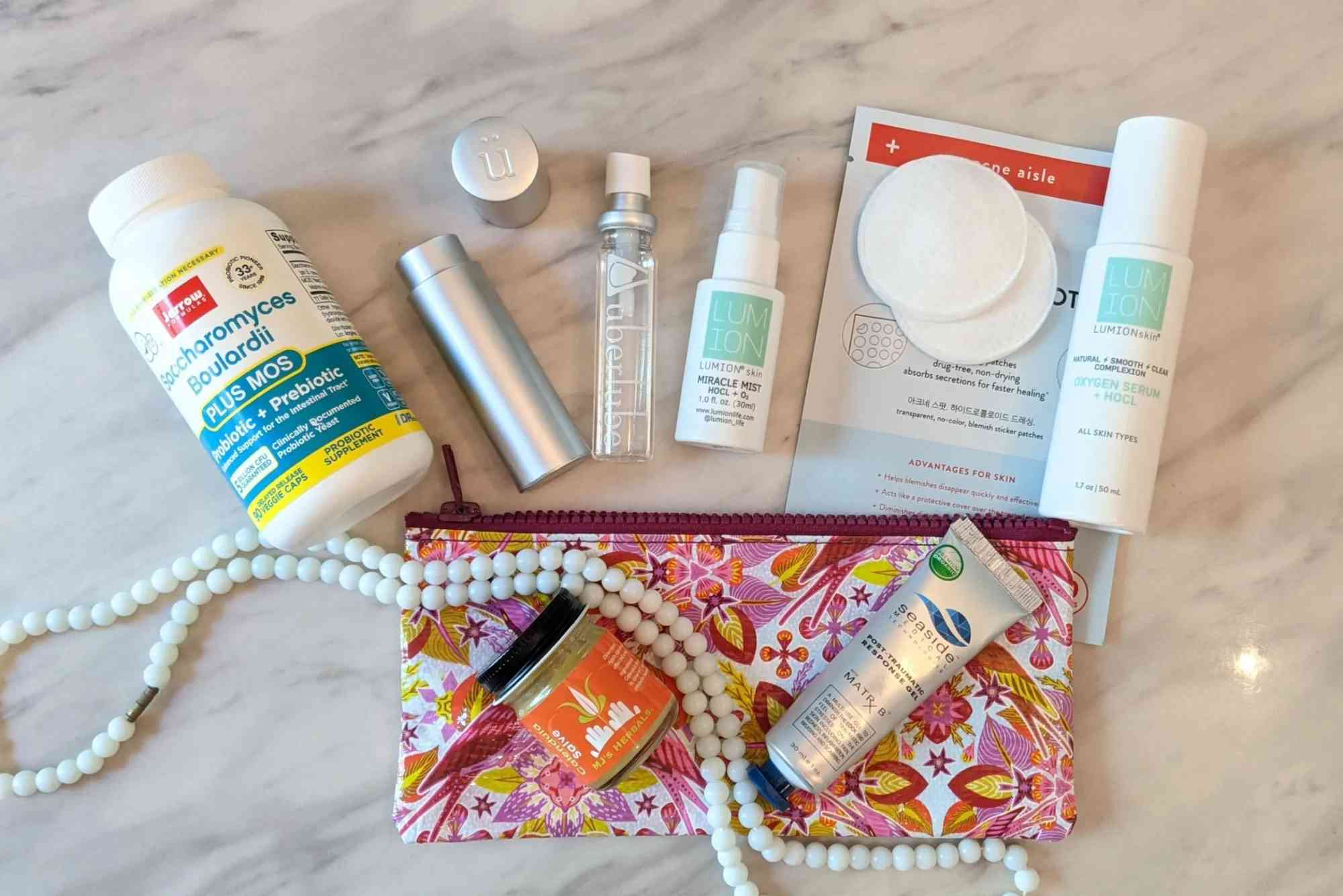Best Glycerin-Free Skincare Products for Sensitive Skin
Sensitive skin often requires special care. While many skincare ingredients are beneficial, not all are suitable for everyone. Glycerin is one such ingredient that, although widely praised for its hydrating properties, can sometimes cause irritation, especially for those with extremely sensitive or allergy-prone skin. For individuals dealing with redness, eczema, or reactive skin, finding effective glycerin-free skincare products can be a game-changer. In this article, we explore why some people avoid glycerin, what alternatives exist, and which products can help you maintain healthy, glowing skin—without compromising comfort.
Why Choose Glycerin-Free Skincare?
Glycerin is a humectant that draws moisture into the skin. It’s found in everything from cleansers and moisturizers to serums and masks. However, for some sensitive skin types, especially those prone to fungal acne or contact dermatitis, glycerin can cause stinging, clogged pores, or even exacerbate breakouts. The reasons people seek glycerin-free products include:
- Personal sensitivity or allergic reactions
- Fungal acne (Malassezia folliculitis) triggers
- Preference for minimalist formulations
- Avoiding occlusive effects in humid climates
People with conditions such as rosacea, eczema, or seborrheic dermatitis often benefit from eliminating glycerin and replacing it with gentler alternatives like aloe vera, squalane, or hyaluronic acid derivatives.
What to Look for in Glycerin-Free Skincare
Switching to glycerin-free skincare doesn’t mean compromising on hydration or skin health. When browsing ingredient lists, look for alternative hydrators and soothing agents. Products with ingredients like panthenol (vitamin B5), allantoin, centella asiatica, oat extract, jojoba oil, and sodium hyaluronate offer similar or better calming and moisturizing effects.
Other points to consider:
- Check for fragrance-free labels: Sensitive skin often reacts to synthetic or natural fragrances.
- pH-balanced formulas: Especially important in cleansers to maintain the skin barrier.
- Non-comedogenic: Products should not clog pores or cause breakouts.
- Cruelty-free and hypoallergenic: Added benefits that often indicate gentle formulations.
Best Glycerin-Free Skincare for Sensitive Skin
Glycerin-Free Cleansers
A good cleanser removes dirt, oil, and makeup without stripping the skin. Glycerin-free options may seem rare, but several high-performing choices are available. Look for sulfate-free cleansers with ingredients like calendula, chamomile, or oat proteins to calm sensitive skin. A gel-based or milky cleanser can maintain hydration while effectively cleansing.
Glycerin-Free Toners and Mists
Toners help rebalance the skin after cleansing and prepare it for further treatments. Glycerin-free toners often rely on hydrosols, cucumber water, or aloe juice. These ingredients are naturally soothing and work well with sensitive or acne-prone skin. Look for alcohol-free formulas that help calm inflammation and refine pores without tightness.
Glycerin-Free Serums
Hydrating serums typically contain humectants, but not all need glycerin. Instead, look for serums with sodium hyaluronate, niacinamide, and ceramides. These ingredients support skin elasticity and strengthen the skin barrier. Antioxidant serums with vitamin C (ascorbyl glucoside or magnesium ascorbyl phosphate) can brighten skin without irritation.
Glycerin-Free Moisturizers
Moisturizing is essential, especially for dry and sensitive skin types. Glycerin-free moisturizers often include emollients like squalane, jojoba oil, and shea butter. These ingredients nourish and hydrate without the stickiness that glycerin-based creams sometimes leave behind. Look for formulations that are silicone-free and paraben-free as well.
Glycerin-Free Sunscreens
Sunscreen is non-negotiable for healthy skin, but many contain glycerin for moisture retention. Mineral sunscreens (zinc oxide or titanium dioxide based) often come in glycerin-free formulations. Choose sunscreens with a lightweight texture, no white cast, and SPF 30 or above. Additional calming ingredients like green tea extract and licorice root are ideal for redness-prone skin.
Glycerin-Free Face Masks
Face masks offer a concentrated treatment and can deliver soothing, detoxifying, or hydrating benefits. Clay masks with bentonite or kaolin purify without drying out the skin when combined with humectants like honey or panthenol. Sheet masks formulated with aloe or rice extract provide calming effects without the need for glycerin.
Benefits of Glycerin-Free Skincare
Eliminating glycerin can make a noticeable difference for some skin types. The benefits go beyond reduced irritation. Many users report:
- Fewer breakouts and congestion
- Reduced redness and sensitivity
- Improved absorption of active ingredients
- Better compatibility with topical medications or treatments
- A more balanced, matte finish in humid climates
For those managing complex skin issues or simply looking for a cleaner, minimalist routine, glycerin-free skincare may offer the clarity and relief they’ve been searching for.
Understanding Ingredient Labels
Glycerin may be listed under several names, including glycerol or glyceryl. Always read labels thoroughly. If unsure, cross-reference with ingredient databases or consult with a dermatologist. Many brands now list “glycerin-free” clearly on their packaging or product descriptions. This is especially true of clean beauty or dermatologist-formulated lines.
Skin Conditions That Benefit From Glycerin-Free Skincare
Several skin conditions respond well to eliminating glycerin from skincare routines:
- Fungal Acne: Malassezia feeds on esters and certain fatty acids, and while glycerin itself isn’t a fatty acid, it can disrupt oil balance.
- Perioral Dermatitis: This rash around the mouth can be worsened by overly moisturizing ingredients like glycerin.
- Seborrheic Dermatitis: A flaky, itchy scalp or face condition sometimes flares up with common moisturizers containing glycerin.
- Rosacea: Sensitive, red skin may find glycerin irritating when skin is inflamed.
- Eczema: While glycerin is helpful for many, some individuals with eczema find relief from switching to alternative hydrating agents.
Always patch-test a new product and introduce only one product at a time to observe reactions.
How to Transition to a Glycerin-Free Routine
Transitioning your routine can be done in steps. First, identify which product categories contain the most glycerin (usually moisturizers and cleansers). Replace those with glycerin-free options. Observe your skin over a week or two before switching additional products. Use a simple, stripped-back routine to allow your skin to rebalance.
Sample Glycerin-Free Routine for Sensitive Skin
- Cleanser: A mild oat-based or aloe-infused cleanser
- Toner: Alcohol-free toner with rose water or cucumber extract
- Serum: Hydrating serum with hyaluronic acid or panthenol
- Moisturizer: Cream with jojoba oil and ceramides
- Sunscreen (AM only): Zinc-based SPF without glycerin
This basic structure supports barrier repair while reducing the chance of irritant overload
Not every ingredient works for every skin type, and glycerin, while generally safe, may not suit everyone. If you’ve struggled with persistent skin issues despite a clean routine, glycerin could be the overlooked trigger. Fortunately, the skincare industry has evolved, and many Glycerin Free Skincare products are now available that offer hydration, barrier support, and calming benefits without the risk of irritation. Whether you have sensitive skin, specific allergies, or simply prefer minimalist formulations, switching to glycerin-free products may help you achieve healthier, happier skin.
(FAQs)
What is glycerin, and why might it cause irritation?
Glycerin is a natural humectant that draws moisture into the skin. However, in some people—especially those with sensitive skin or skin conditions like rosacea—it can cause stinging or worsen breakouts.
Can glycerin cause breakouts or fungal acne?
Yes. While not inherently comedogenic, glycerin may contribute to fungal acne or clogged pores in some individuals, especially when combined with heavy creams or humid environments.
What are the best alternatives to glycerin in skincare?
Some of the best alternatives include hyaluronic acid, panthenol, aloe vera, squalane, and ceramides. These ingredients hydrate and soothe the skin without the potential side effects of glycerin.
Is glycerin bad for sensitive skin?
Not always, but it depends on the individual. For some with extremely sensitive or reactive skin, eliminating glycerin leads to fewer breakouts, reduced inflammation, and improved overall skin comfort.
How can I check if a product is glycerin-free?
Check the product’s ingredient list for terms like “glycerin,” “glycerol,” or “glyceryl.” You can also look for certifications or product descriptions that specify “glycerin-free.”
What skin conditions benefit from glycerin-free skincare?
People with fungal acne, eczema, seborrheic dermatitis, or rosacea may find that glycerin-free skincare reduces flare-ups and irritation.





